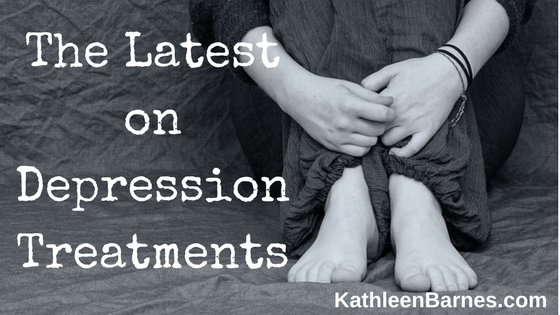If you or anyone you love suffers from depression, you know that treatment is hit or miss, difficult and sometimes nearly impossible.
This week’s Time magazine cover story bemoans the fact that little progress had been made in decades on pharmaceuticals to treat depression, and underscores the fact that 30% of all people on prescription anti-depressants get no relief whatsoever.
Clinical depression is terrible. There is no doubt about it. Over the centuries, scientists have theorized that is it caused by witches cursing the victims, bad spirits and, in recent decades, brain chemistry imbalances and genetic malfunctions.
Modern drugs to treat depression are woefully infective – the best research shows anti-depressants are as effective as placebos, sugar pills. In addition, these drugs carry with them a multitude of nasty side effects, including weight gain, insomnia, sexual dysfunction and even deepening depression and suicidal tendencies.
The Time article notes that researchers are now investigating are now novel approaches to depression that may offers some hope.
Nevertheless, there are natural approaches to depression that science has proven to be at least as effective, and in some cases more effective, as pharmaceutical anti-depressants without side effects.
Here they are:
- Exercise! Move your body in whatever way you can and in whatever way you enjoy. I have always believed that by loving your body, you move your mind. I’ve personally experienced that benefit countless times and science backs it up. It’s believed that exercise stimulates the production of brain chemicals, especially the natural anti-depressants serotonin and dopamine. Of course, if you’re depressed, exercise is probably the last thing you want to do—so there’s a bit of mind-over-matter of overcoming resistance, but there’s no harm, it’s free and even a gentle walk after dinner will likelyresult in quick and measurable improvement. Unlike prescription anti-depressants that take four to six weeks to take hold, if they ever do, the effects of exercise can be noticed almost immediately.
- Cognitive behavioral therapy: This specific form of psychotherapy involves changing thought patterns, especially the negative ones that can actually cause physical furrows in brain tissue. Negative thought patterns and the negative self-talk that accompanies them (“I’m too dumb, I’m too fat, etc.”) can become the soundtrack of our lives, but conscious effort through this type of therapy can change the habit.
NOTE: EFT (Emotional Freedom Technique or tapping) can have many of the same effects without the need for a therapist. Learn more at The Tapping Solution.
- Mindfulness meditation: This method of intensively monitoring your thoughts in a structured meditation practice has been broadly studied and found to be at least as effective as prescription drugs. A search of PubMed (the database of the National Library of Medicine this morning returned 379 published studies connection this practice to depression relief.
- Curcumin: My regular readers know that I am a huge fan of curcumin for a number of reasons, including its clinically proven effectiveness against depression. A groundbreaking study published in 2014 showed curcumin was at least as effective as Prozac without side effects. Another shows it is effective against major depression and numerous other studies confirm that curcumin helps the body release brain chemicals that raise mood. NOTE: The most absorbable type of curcumin is the BCM-95 formulation. Googling “curcumin BCM-95” will return numerous products containing this type. It also usually reaps noticeable effects in two weeks or so.
- Rhodiola rosea: The root of this scrubby shrub has been confirmed as effective against depression in at least 11 human studies and others show it is more effective than a placebo, with only minor side effects in some people of dry mouth and slight dizziness. It’s also been proven effective against anxiety, which often accompanies depression.
Depression doesn’t have to rule your life or the life of someone you love. These natural approaches are not airy-fairy or woo-woo. They are scientifically studied and validated. They are more effective than pharmaceuticals. Please give them a try. They work.
See more from Kathleen on Depression and Emotional Health.







